The Fight For Common Wealth | 22-24/10/15 | Workshops, Talks, Performances + Cooking | Volksbühne at Rosa-Luxemburg Platz | Berlin
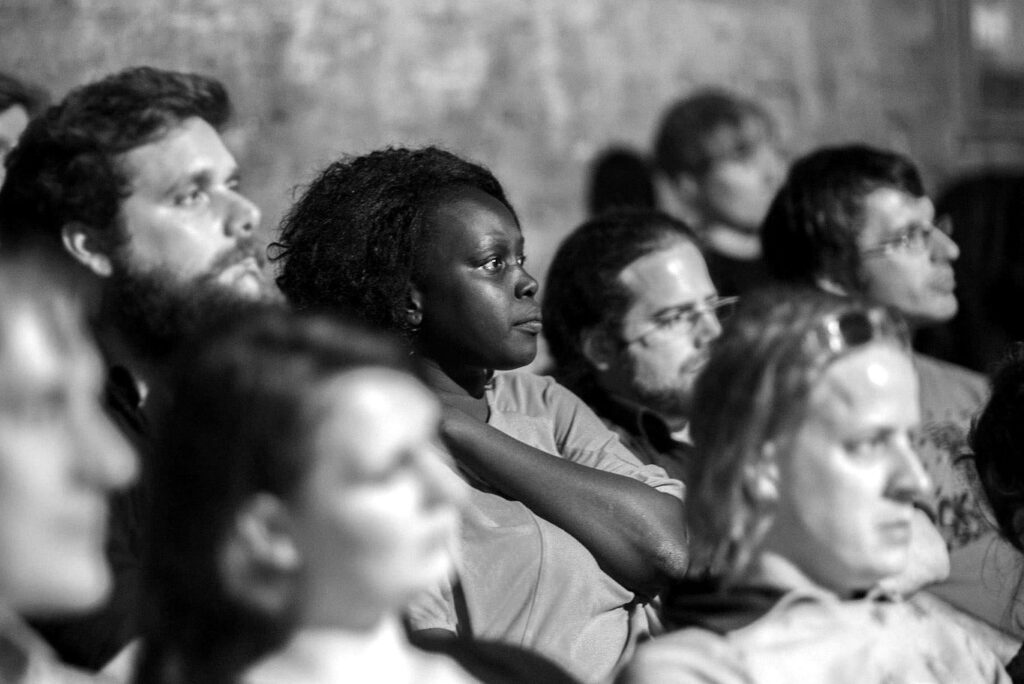
Today, we find ourselves at the beginnings of a new way. We don’t know exactly where it will take us, but we already know its promise. And its name: the commons.
All people should be sufficiently equal as to have the material resources that make the flourishing of human life possible. Today, more than ever before, our societies are failing to live up to this ideal. At this juncture a new practice of ownership emerges – bottom-up and collective, rather than state-run or private. Known as the commons, it promises to make economic as well as political participation more equal and democratic. And the past quarter of a century of commons, both online and offline, has taught us: “people can effectively act collectively to govern their own utilization of resources” as Yochai Benkler points out. This proves that there is an alternative to the corrosive inequalities fostered by neoliberal states and markets. So let us explore this new way!
I. Initiating Beginnings
Trial and Error
At the UN|COMMONS conference (October 22-24) the Berliner Gazette and Volksbühne at Rosa-Luxemburg Platz hosted more than 500 participants and visitors, who explored over the course of three days the commons as a new way. Here we present our findings.
Most importantly we learned that it is all about initiating beginnings. This can for instance mean acknowledging as well as mapping alternatives or redefining top down concepts such as “the economy”, opening elitist practices that are of eminent importance to civil society or turning leaks into public records, but also reclaiming what has been stolen from us and politicizing communities that operate in grey zones. Many of such beginnings are not networked among each other, many of them take place without the awareness of working towards the commons. Therefore our major task is to make visible those beginnings as a shared project and to contextualize them inside the grand narrative of the commons.
In that sense our concept of the UN|COMMONS accounts for departure and quest, trial and error. Moreover it suggests that anything out there could be our commons, if we collectively set out to struggle for it – and never stop. Ultimately it projects the commons as a big cycle, that always returns to that ground zero where the commons are as yet uncommon – remaining dynamic and open by perpetually meditating anew the beginnings.
Look at photos and watch a video that brings together voices from the conference.
Mapping a new way

The commons have become the most exciting space for the critique of capitalism and also a scalable social practice. No longer limited to an avantgarde, the commons could take our societies beyond the constraints of markets and states – as Yochai Benkler and Michel Bauwens observe. In a talk recorded at the UN|COMMONS conference those two leading thinkers and practioners of the commons look back at experiences from the past 20 years and present outlooks for what we are able to change at the macro level if we continue to struggle for the commons.
Yochai Benkler is the internationally acclaimed author of “The Wealth of Networks” (2006) and the co-director of the Berkman Center for Internet & Society at Harvard University. Michel Bauwens is a commons theorist and the founding director of the P2P Foundation, a global organization of researchers working on peer production, governance, and property.
Listen to their talk with an engaged audience and watch an interview with Yochai Benkler recorded on video at the UN|COMMONS conference in Berlin.
> audio player (60 min.)
> video player (12 min.)
Redefining the economy
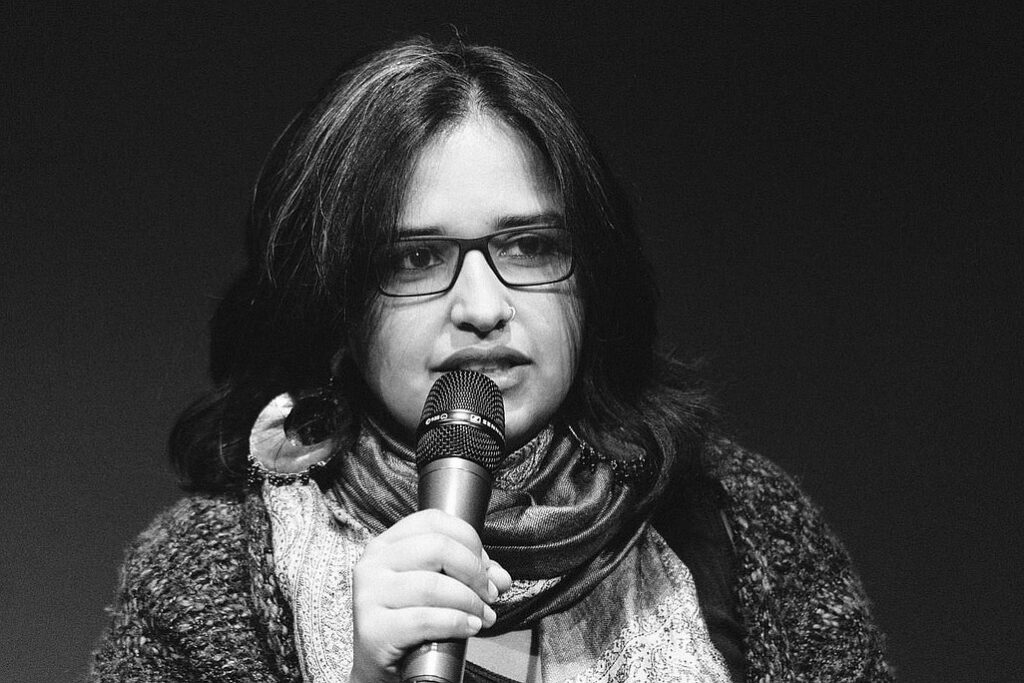
Social movements across the globe embrace the commons as non-capitalist economies that are rooted in social relationships and that are motivated by community needs and not by markets. But when we speak of non-capitalist economies, or when we speak of the economy at all, we need to expand our definition, especially as it relates to work and labour. In her talk at the UN|COMMONS conference Harsha Walia reflects upon a people’s redefinition of the economy by focusing on the struggles of people that are criminalized in our societies.
Harsha Walia is a social justice activist. She is the co-founder of the Vancouver chapter of No One Is Illegal, which is best known for the awareness campaign Never Home. Her book “Undoing Border Imperialism” (2013) has been called “the first extended work on immigration that refuses to make the sovereignty of indigenous people invisible.”
Listen to the audio recording or read the edited transcript of her statement. And watch an interview with her recorded on video at the UN|COMMONS conference in Berlin.
> audio player (15 min.)
> edited audio transcript
> video player (6 min.)
Creating public records
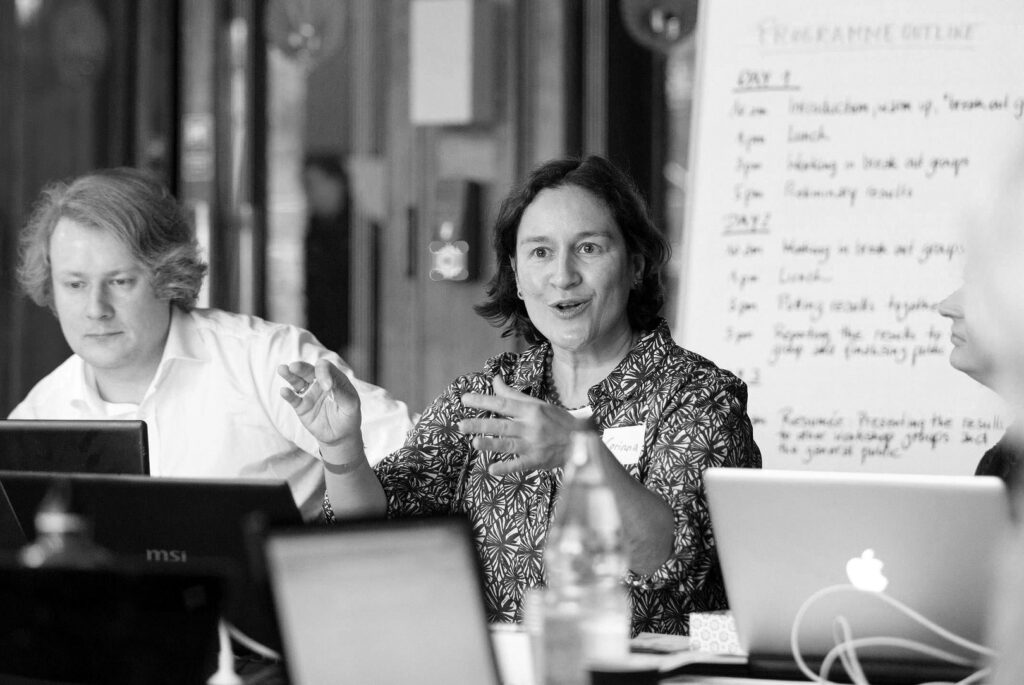
The Snowden revelations have caused a global debate on the most pressing issues of our post-digital societies: democracy and privacy, accountability and power of governments as well as corporations. Yet, what does it mean to handle the documents in a responsible manner? How can we preserve them in accessible and sustainable ways? How can we transform them into a knowledge commons?
At the beginnings of this process we have to deal with the challenge to transform the Snowden files into public records, e.g. by making them accessible through public libraries. On this basis, multi-stakeholder collaboration processes can create the communities, that transform the Snowden leaks into a commons. So, how to start? How can the Snowden files enter the public library system?
Check out a position paper that the Berliner Gazette developed together with participants of the UN|COMMONS workshop “Snowden Files For All?”. It discusses hands on approaches and develops a collaborative approach to the challenge. > text > video player (7 min.)
To find the names of the people who have collaborated on this project, please scroll down to the program section WORKSHOPS.
Note: We continue to work on these issues at a series of talk curated by Berliner Gazette at the transmediale 2016.
Opening Investigations
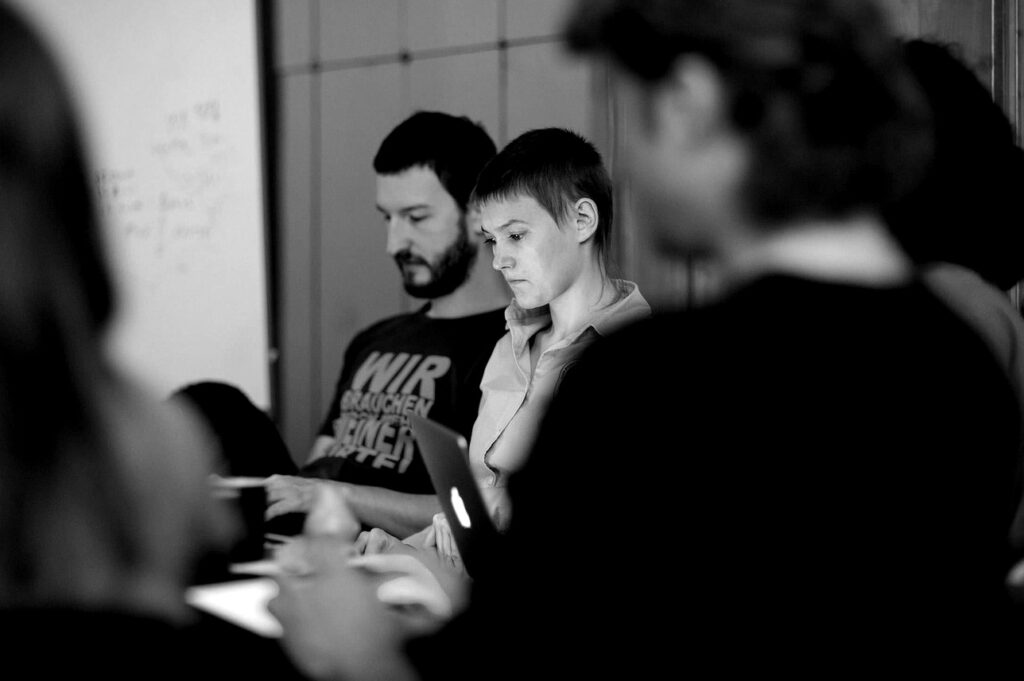
Constructing a commons is always also about fostering equality and horizontality in the production of knowledge. Investigative journalism for instance remains largely a hierarchical undertaking. So a beginning could be about breaking the walls between the ‘few’ who investigate and the ‘many’ who are supposed to consume the knowledge generated by the investigation. How to foster participation in the production and reception processes of journalism? How to create bridges between investigative journalism and bottom-up practices?
Check out some ideas that were developed at the UN|COMMONS workshop “Who Reads Open Secrets?”.
* A model for investigative journalism as a game like experience.
> PDF download
* A model for a two way radio project that enables refugees to communicate to each other in order to solve problems, address issues, and find opportunities.
> website
* A handbook on investigative journalism that provides a crash course for amateurs and beginners.
> PDF download (handbook)
> PDF download (context info)
* A social graph of the RCIJ that can be used by any organization to visualize their own network in order to understand how they can use better network topology to foster participation and collaboration in investigative projects.
> website
To find the names of the people who have collaborated on these projects, please scroll down to the program section WORKSHOPS.
Modelling Anonymity
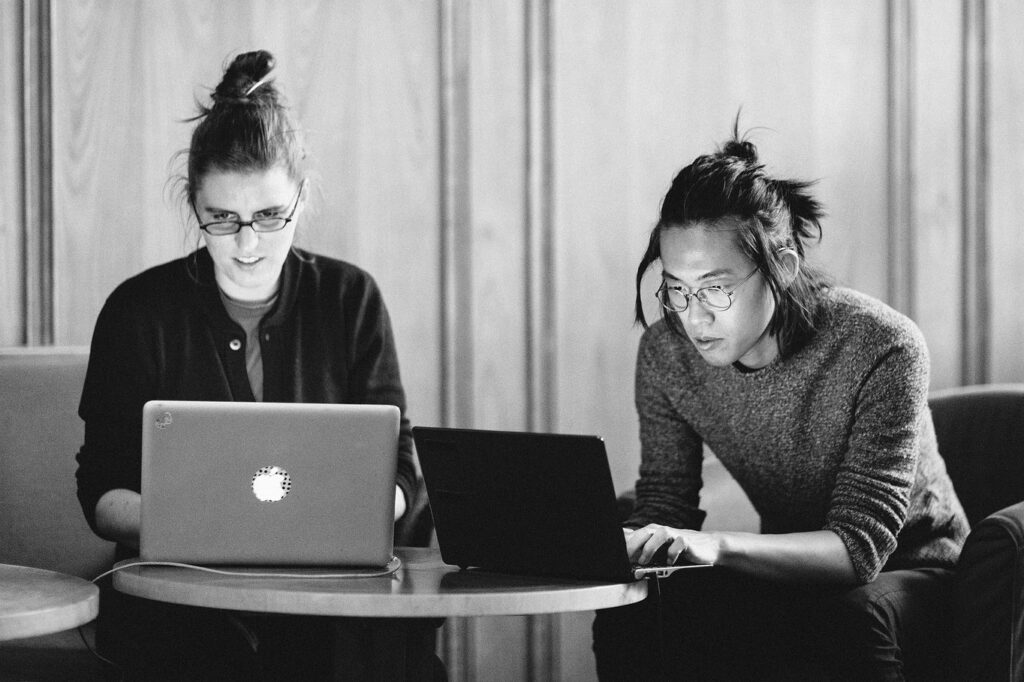
While respect for authorship lies at the heart of the knowledge commons, there is also a great need for anonymity – particularly in the field of journalism. Sources, writers and readers alike need the type of protection that anonymity offers in order to be able to pursue their work, that is carried out under increasingly repressive circumstances. However, in our post-digital societies nobody is supposed to have a secret, nobody is supposed to be anonymous. People who are merely searching for anonymity tools like TOR on the web automatically get on a NSA watch list, being classified as potential terrorists.
How can we change the narrative on anonymity? How can we create common sense and a healthy “we” with regard to anonymity? How can we learn from communities that experiment with anonymity, trying to resolve the destructive potential of anonymity? Ultimately, how can go about commoning anonymity?
Check out some ideas that were developed in the UN|COMMONS workshop “Are We Up For Anonymity?” for a storytelling project.
> multimedia website
> report
To find the names of the people who have collaborated on this project, please scroll down to the program section WORKSHOPS.
Politicizing Otaku
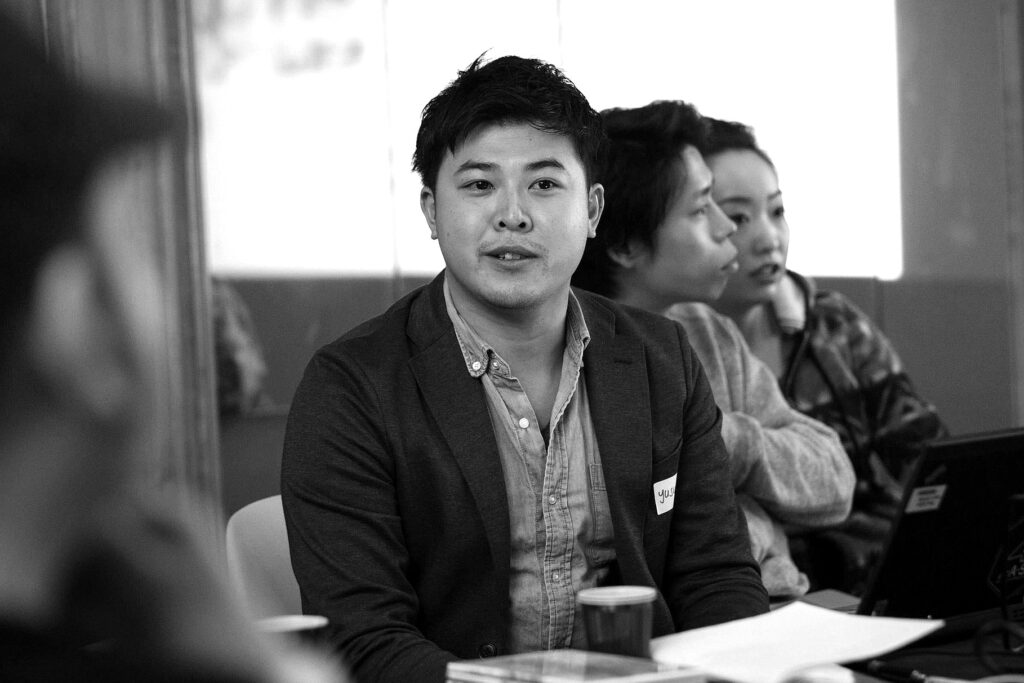
Today, the creative remixing of proprietary products such as comics takes place in internationally networked communities – one of the best known are Otaku cultures. In countries like Japan this highly innovative peer-production challenges in quantity as well as quality the official industry represented by major corporations and their stars.
However, Otaku cultures are not secured by any legal frameworks. Their activities are set in a grey zone, legal prosecution for piracy is a daily risk. Proposals such as the Transatlantic Trade and Investment Partnership (TTIP) threaten to abolish the grey zone for good – unequivocally criminalizing remix cultures. One way to approach this dilemma would be to politicize Otaku cultures and to mobilize them as battle fields in the fight for the knowledge commons.
Check out approaches that were developed at the UN|COMMONS workshop “Whistleblower Goes Otaku”.
* A model license for remixing with respect.
> PDF download
* A challenge for Otaku to explore the potential of anonymous civic action.
> video player (7 min.)
* The ‘Otaku as pirate’ turns into the ‘Otaku as data monster’.
> video player (2 min.)
To find the names of the people who have collaborated on these projects, please scroll down to the program section WORKSHOPS.
Reclaiming big data
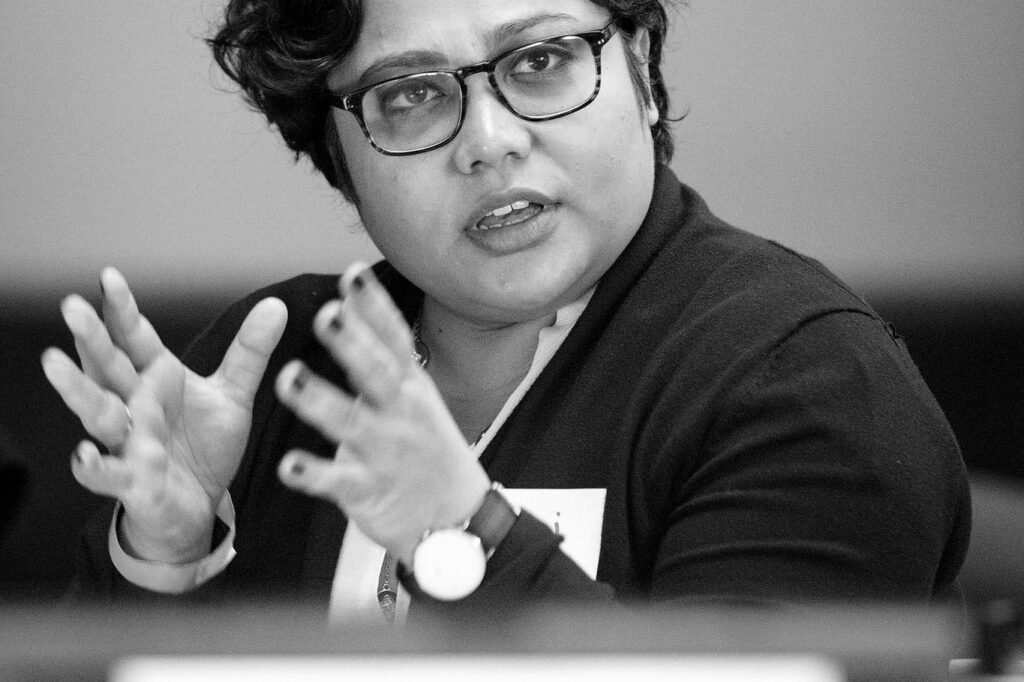
Today the importance of “big data” cannot be understated, nor can the power relation that circulate through it be ignored or downplayed. Data processing is becoming a key means by which our society, economy and social lives are being shaped. However, mass collection, storage and analysis of private data sets is organized by companies, governments and secret service agencies in intransparent, unregulated ways, without democratic control. This is undermining fundamental individual and common rights and the power of the people in general.
Therefore we need to put things into perspective: We, the users, produce more than 75% of the data that make up our digital universe. However, we do not think of those data as the product of our collective labor and therefore as something we should own. Instead large corporations and powerful states own ‘our’ big data. So we need to ask: Is there a way to turn big data into our digital commons?
Check out ideas that were developed at the UN|COMMONS workshop “Big Data In Our Hands?” dealing with commons data, data governance, data infrastructures, commons data centers and data enlightenment.
> website
> video player (6 min.)
To find the names of the people who have collaborated on this project, please scroll down to the program section WORKSHOPS.
Commoning Futures
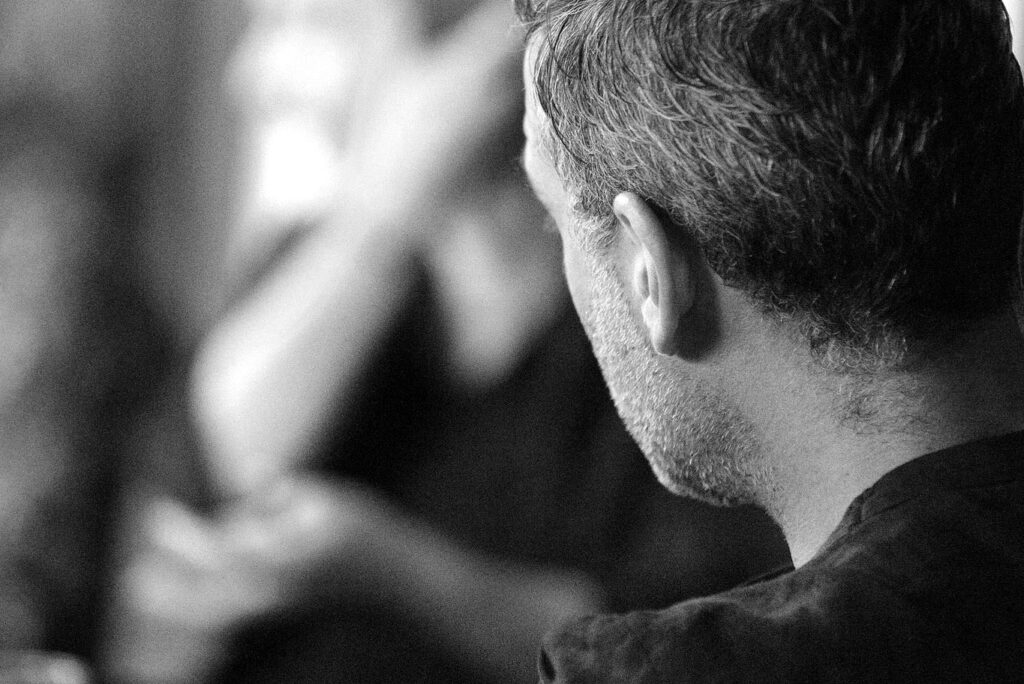
Witnessing the streams of refugees entering the Global North, we can sense how previously marginalized groups will reshape the topography of collective imagination beyond recognition. Their actions disrupt and put into question the cherished idea of a ‘safe haven’ and the very nature of basic human rights. Moreover, and perhaps more importantly, they shatter the notions of who ‘we’ are, forcing us to question the most basic categories of society and its futures. But what if we were to pose the urgent questions of the post-digital society from the perspective of these ‘left over populations’? Might their experiments, experience and expertise be the testing grounds for shared digital futures?
Today, the future seems to be the exclusive business of trend researchers, opinion poll statisticians, economists and market-savvy politicians. Big-data driven technologies of prediction have even expanded their authority, comforting states and markets which are busy with administering the status quo. Hence our big task is to rethink the production of futures. More precisely to rethink and rebuild civil society in order to create common futures and the commons of the future.
A follow up to UN|COMMONS, the Berliner Gazette will tackle in 2016 the schism of pragmatism and utopianism. Under the title “Tacit Futures” we wish to collaborate with civil society actors on contributions to our online newspaper, partner events and the annual Berliner Gazette conference scheduled for mid-November in Berlin.
Read an extensive text about the theoretical framing for our collective efforts in 2016.
> PDF download

Water and food, data and networks, medicine and cultural assets: Who owns these resources? Who ought to?
Who has access and whose access is denied? What is the value of these resources and how might they help or hinder us in overcoming the various crises of our times? Do we need rules, guidelines and agreements to govern use and access, and if so, what sort? The Berliner Gazette and the Volksbühne at Rosa-Luxemburg Platz invited the general public to discuss these urgent issues at the UN|COMMONS conference. The three-day event focused on those resources that are being privatised or made inaccessible, but which could become common property in the future – commons that are as yet uncommon. In short: UN|COMMONS that challenge us, the people, to make a collective effort towards democratic and sustainable forms of human togetherness.
II. Program
Grand Opening 22-10-15
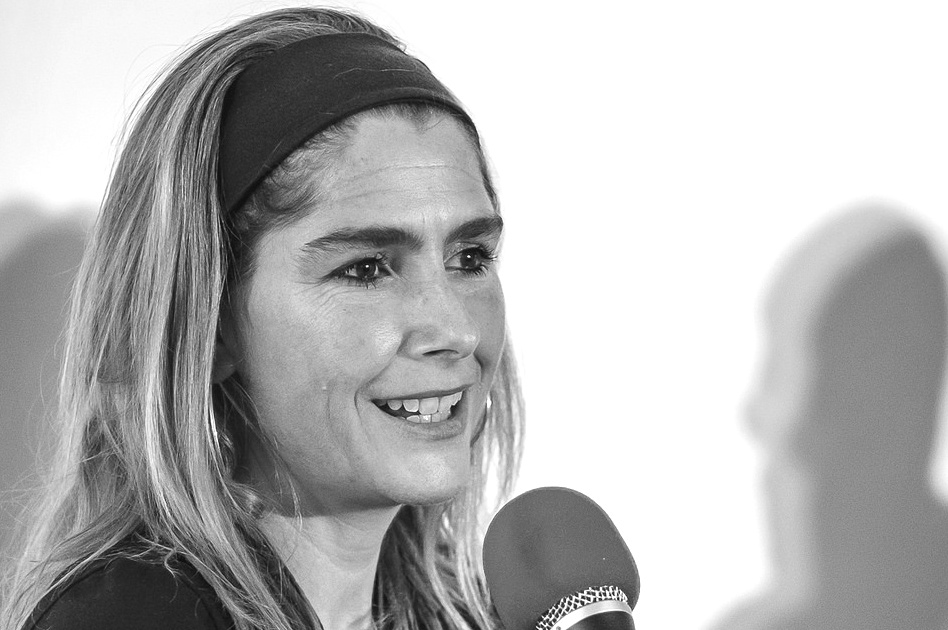
Marina Sitrin, one of the initiators of the Occupy Wall Street Movement and author of the book “They Can’t Represent Us! Reinventing Democracy From Greece to Occupy” (with Dario Azzellini), guides us in her storytelling performance through Solidarity Clinics in Greece, which are organized by staff and community. In the process of running them with assemblies amongst both ‘patients’ as well as ‘staff’ they have begun to rethink the meaning of health care and health overall. With guests from Thessaloniki: Eva Babalona, Ilektra Bethymouti and Theodoros Karyotis.
Final act: Live-Crowdfunding for Solidarity Clinics in Greece with Silke Helfrich from the Commons Strategy Group.
Info
Grand Opening on October 22 at 8:30 p.m.
Tickets (8,-/reduced 6,-) can be reserved and purchased via Volksbühne: 030-24065-777 | ticket(at)volksbuehne-berlin.de | online here.
Workshops 22/23/24-10-15
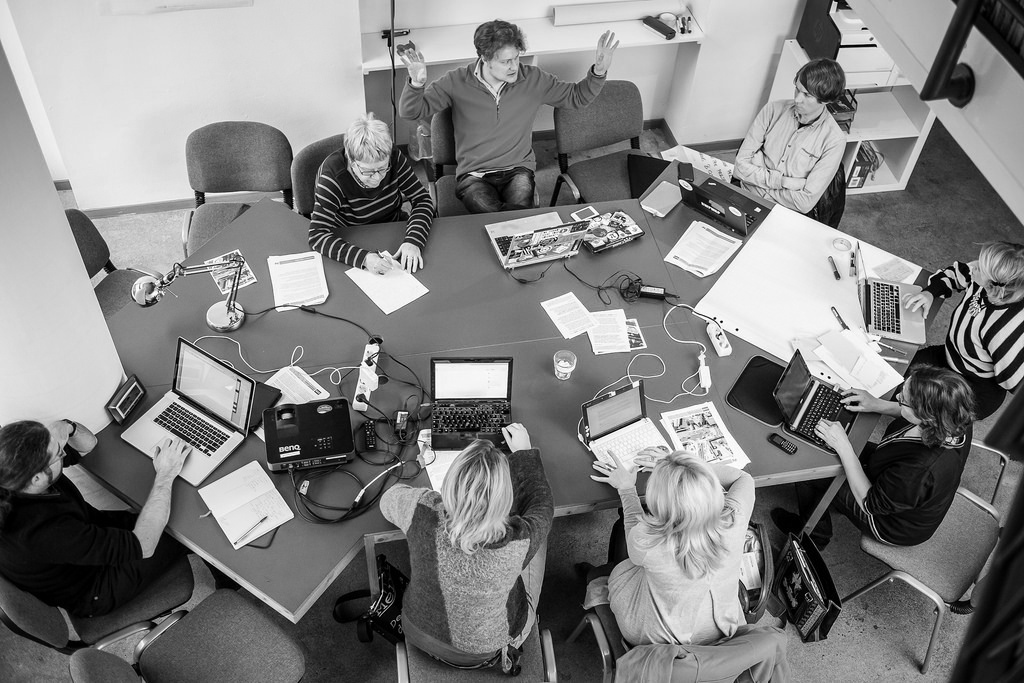
Join more than 100 activists, media folks as well as researchers from 20 countries and explore the digital commons of the post-Snowden world. We offer five parallel workshop tracks for collaboration on crossmedia stories, position papers or tools. For further details please scroll down.
Info
Workshops on October 22+23, 10 a.m.–6 p.m. and on October 24, 10–12 a.m.
Registration is required by October 4 under the following email: info(at)berlinergazette.de
Performance 23-10-15
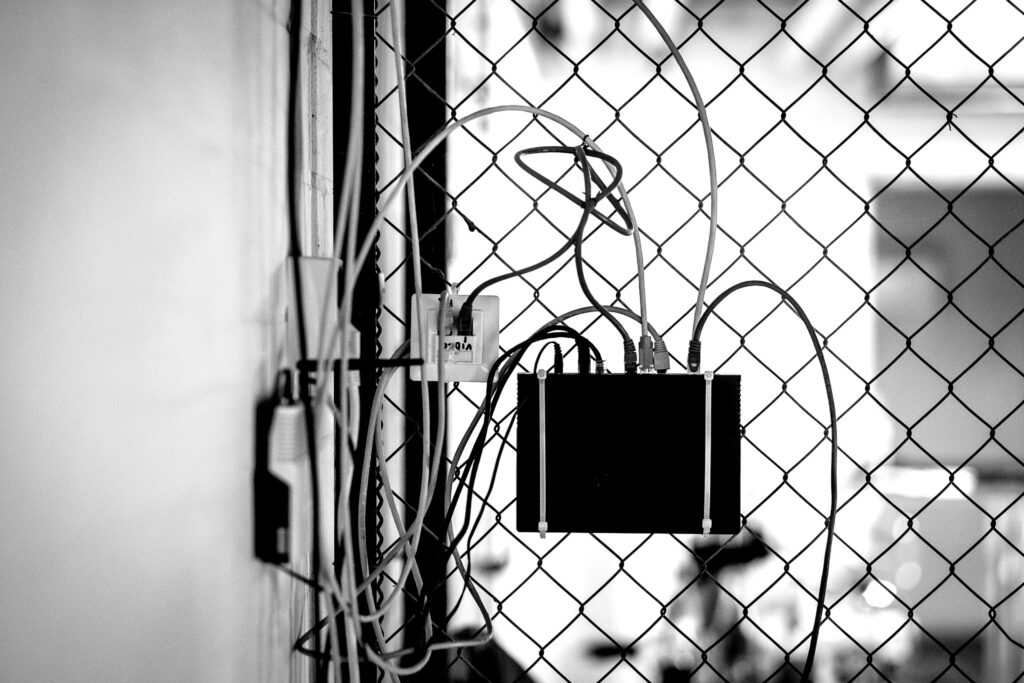
Theater director Angela Richter stages the Whistleblowing For Commons performance based on her SUPERNERDS research – in-depth interviews with a number of well-known whistleblowers and internet activists including Edward Snowden and Julian Assange. Special Guest: Hacker and Haiku-Poet Sazae Bot, the new Star-Avatar from Tokyo, Japan.
Info
Performance on October 23 at 8:30 p.m.
Tickets (8,-/reduced 6,-) can be reserved and purchased via Volksbühne: 030-24065-777 | ticket(at)volksbuehne-berlin.de | online here.
Talks 24-10-15
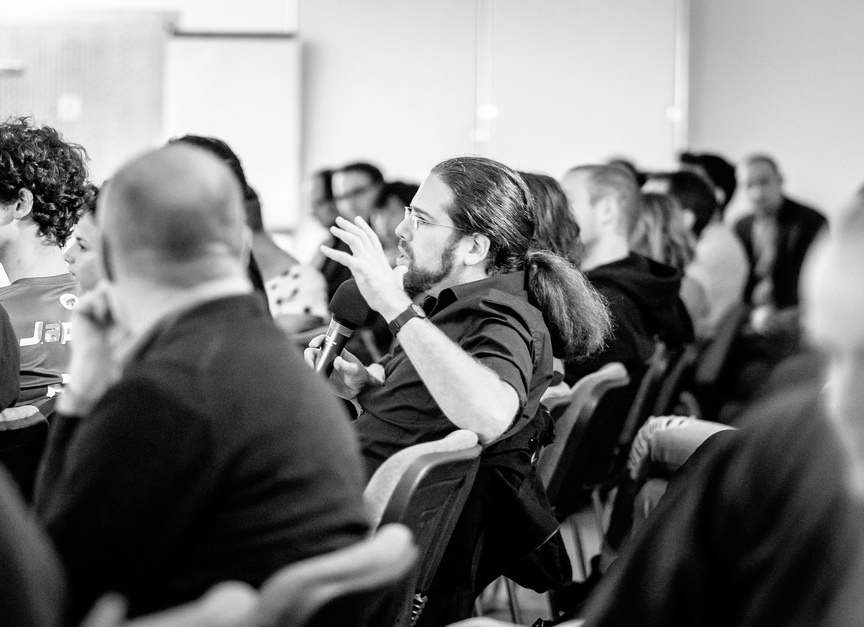
Lightning talks by researchers, artists and activists stimulate audience discussions about the fight for common wealth.
2:30 p.m.: Welcome
With Thorsten Schilling (German Federal Agency for Civic Education) and Krystian Woznicki (berlinergazette.de).
3:00 p.m.: What could be our commons?
With Michel Bauwens (P2P Foundation, Chiang Mai) and Yochai Benkler (Harvard University, Boston). Moderation: Max Haiven (Radical Imagination Project, Halifax).
4:30 p.m.: What’s endangering the commons?
With Alexander Karschnia (andcompany&Co., Berlin) and Morana Miljanovic (Hertie School of Governance). Moderation: Sophie Bloemen (commonsnetwork.eu, Berlin).
6:00 p.m.: How can we fight for the commons?
With Pelin Tan (Silent University, Mardin) and Harsha Walia (No One Is Illegal, Vancouver). Moderation: Sandra Mamitzsch (Digitale Gesellschaft, Berlin).
Info
Talks on October 24, 2:30–7:30 p.m.
Tickets (8,-/reduced 6,-) can be reserved and purchased via Volksbühne: 030-24065-777 | ticket(at)volksbuehne-berlin.de | online here.
Cooking 24-10-15

A thematic dinner: Thoughts on food, food for thought. The closing event invites you to join the collaborative experiment Commons Cuisine with artist Pepe Dayaw. As a facilitator, choreographer and cook he will host a commons laboratory: You are invited to bring your own food to this performance workshop – leftovers, cooked or uncooked. We will transform what you bring into something extraordinary. Let us co-create a banquet with no master recipe and experience anew the texture of our co-existence!
6:30 p.m. Bring your leftovers
8:00 p.m. Cooking process begins
9:00 p.m. Dining starts
Info
Cooking on October 24 at 8 p.m.
Tickets (8,-/reduced 6,-) can be reserved and purchased via Volksbühne: 030-24065-777 | ticket(at)volksbuehne-berlin.de | online here.
III. Workshops
Registration
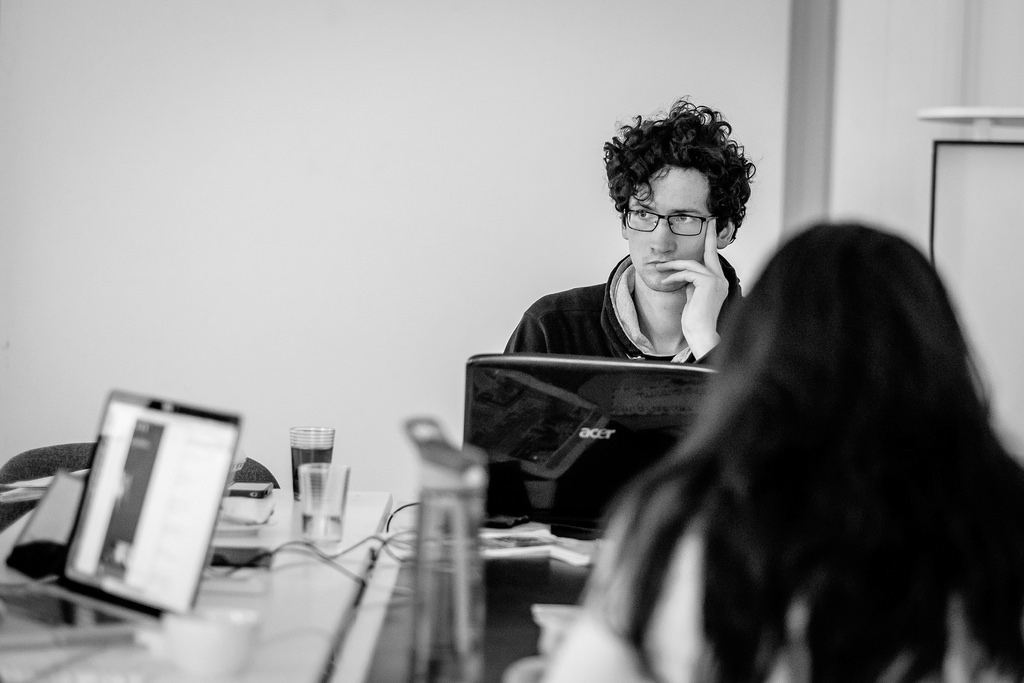
The five UN|COMMONS workshops target journalists, activists and researchers. As they are run in parallel fashion, participants need to commit to one single track. On October 22 and 23 the workshops take place from 10 a.m. to 6 p.m., on October 24, when the results are presented, from 10 to 12 a.m. A limited number of participants can register through Oct. 4 by contacting the following E-mail: info@berlinergazette.de.
Workshop guests invited by the conference organizers include representatives from independent journalism organizations, media houses, research institutions, cultural initiatives, activist networks and NGOs.
Please check the workshop results from our last annual conference. They are presented in the section PROJECTS on this website.
Big Data In Our Hands?
Big data is rarely seen as a phenomenon of co-production although more than 75% of the data constituting our digital universe is co-produced by us, the people, in the course of our daily (digital) lives. So, how do we turn big data into our digital commons? The workshop “Big Data In Our Hands?” discusses a position paper being collaboratively developed by Berliner Gazette for transforming the administration and control of big data away from large corporations like Google or government bodies like the NSA and towards common and public institutions.
Workshop guests include Avantika Banerjee (wiredandnetworked.com), Zeljko Blace (Multimedia Institute), Sophie Bloemen (commonsnetwork.eu), Benjamin Cadon (labomedia.org), Martin A. Ciesielski (Medienmosaik), Benjamin Diedrichsen (OPENMEDiAID), Max Haiven (Radical Imagination Project), Anna Magdalena Kedzierska (code4sa.org), Tomislav Medak (mi2.hr), Annette Mühlberg (ver.di), Nina Pohler (Hafen City Universität Hamburg), Alison Powell (London School of Economics), Jaron Rowan (Xnet), Lukas Stolz (European Alternatives), André Wilkens (Analog ist das neue Bio). Moderators: Ela Kagel (Supermarkt) + Christopher Senf (berlinergazette.de).
Info
Workshop on October 22+23, 10 a.m.–6 p.m. and on October 24, 10–12 a.m.
Are We Up For Anonymity?
Anonymity is a controversial issue in the post-Snowden world. While serving as a vehicle for criminalization of various cultures (like Anonymous or TOR), many communities experiment with concepts that try to resolve the destructive potential of anonymity. How to create common sense and a healthy “we” with regard to anonymity? The workshop “Are We Up For Anonymity?” tackles the world of online forums in the field of journalism by developing a storytelling project about those issues.
Workshop guests include Jérôme Hourdeaux (mediapart.fr), Valentin Ihßen (Universität Witten/Herdecke), Inga Lirenkadan (34mag.net), Lejla Medanhodzic (AWID Women’s rights), Sara Moreira (Moving Cause), Joseph Ketelhut (TU Ilmenau), Katerina Michailidi (BookSprints), Jacopo Ottaviani (Generation E), Cristina Pombo (Expresso), Kavya Sukumar (Knight-Mozilla Open News). Moderators: Magdalena Taube (berlinergazette.de) + Francis Tseng (The Coral Project).
Info
Workshop on October 22+23, 10 a.m.–6 p.m. and on October 24, 10–12 a.m.
Who Reads Open Secrets?
Journalism based on leaks is often limited to hegemonic patterns of interpretation and interest. For now, leaks are mostly manifestations of the constricted views of governments and corporations. Meanwhile working with leaked documents remains an exclusive undertaking. How can we break those walls? The workshop “Who Reads Open Secrets?” invites participants to design frameworks, in which the general public participates in investigative projects as easily as in a game of monopoly.
Workshop guests include Kat Austen (worldflows.net), Andreea Bonea (The Sponge), Klaus Bruegmann (Zentrifuge Games), Annabel Church (influencemapping.org), Chris Csikszentmihalyi (M-ITI), Abiol Lual Deng (Kendake Partners), Thomas Dönnebrink (QuiShare), Sebastian Mondial (Die Zeit), MC McGarth (transparencytoolkit.org), Alex Morega (RosEDU), Valentina Pavel (ApTI), Pit Schultz (reboot.fm), Maria Xynou (Tactical Tech), Christoph Zeiher (Zeit Online). Moderators: Stefan Candea (eijc.eu) + Marie Gutbub (Center for Investigative Journalism).
Info
Workshop on October 22+23, 10 a.m.–6 p.m. and on October 24, 10–12 a.m.
Whistleblower Goes Otaku
How can the debates caused by the Snowden revelations infiltrate the consciousness of the so called silent majority? The workshop “Whistleblower Goes Otaku” takes the global otaku community as testing ground. Their remix culture is full of affinities to the whistleblower and hacker culture represented by Snowden. Yet, how can deeper ties evolve? Responses to this challenge are being developed within the workshop.
Workshop guests include Yuuki Abe (Cosplaids), Bogdan Gorganeanu (otakufestival.com), Alina Floroi (Laborazon), Riho Higashida (Takemura Juku), Nakano Hitoyo (Sazae Bot), Adriana Homolova (Onderzoeksredactie), Fumi Murata (Avec Lab), Mitsuhiro Takemura (Takemura Juku), Stefan Tiron (otakufestival.com), Yusuke Yaegashi (4th Park Studio), Luke Zuberbühler (japanimanga-night.ch). Moderators: Lilian Masuhr (berlinergazette.de) + Michael Prinzinger (berlinergazette.de).
Info
Workshop on October 22+23, 10 a.m.–6 p.m. and on October 24, 10–12 a.m.
Snowden Files For All?
The Snowden revelations have caused a global debate. Yet, what does it mean to handle the documents in a responsible manner? How can we preserve them in accessible and sustainable ways? How can the leaks become public record? The workshop “Snowden Files For All?” discusses hands on approaches and develops a position paper for a collaborative approach to this challenge.
Workshop guests include Eva Babalona (kiathess.gr), Diani Barreto (Courage Foundation), Branka Curcic (Kuda.org), Kristoffer Gansing (transmediale), Patricia Hoeppe (Frankfurt University of Applied Sciences), Evan Light (Portable Snowden Surveillance Archive), Frauke Mahrt-Thomsen (Kritische Bibliothek), Diana McCarty (reboot.fm/faces), Morana Miljanovic (Hertie School of Governance), André Rebentisch (meshcon.net), Maria Tengarrinha (O Espelho), Caleb Waldorf (apubliclibrary.org). Moderators: Sabrina Apitz (berlinergazette.de) + Corinna Haas (ICI Library).
Info
Workshop on October 22+23, 10 a.m.–6 p.m. and on October 24, 10–12 a.m.
Our crowd, our mission
When we tackle politics, technology and the media we strive for diversity in terms of gender, tech literacy and professional background as well as expertise. We bring a wild mix of people together to stimulate collaborative creativity. Our crowd is a gathering of people from a range of skill-sets, political orientations, passions and talents. We wish to attract experts and beginners, hybrids and border-crossers, men and women.
Women: 50%
Non-Techs: 60%
Beginner: 40%
Hybrids: 76%
IV. participate
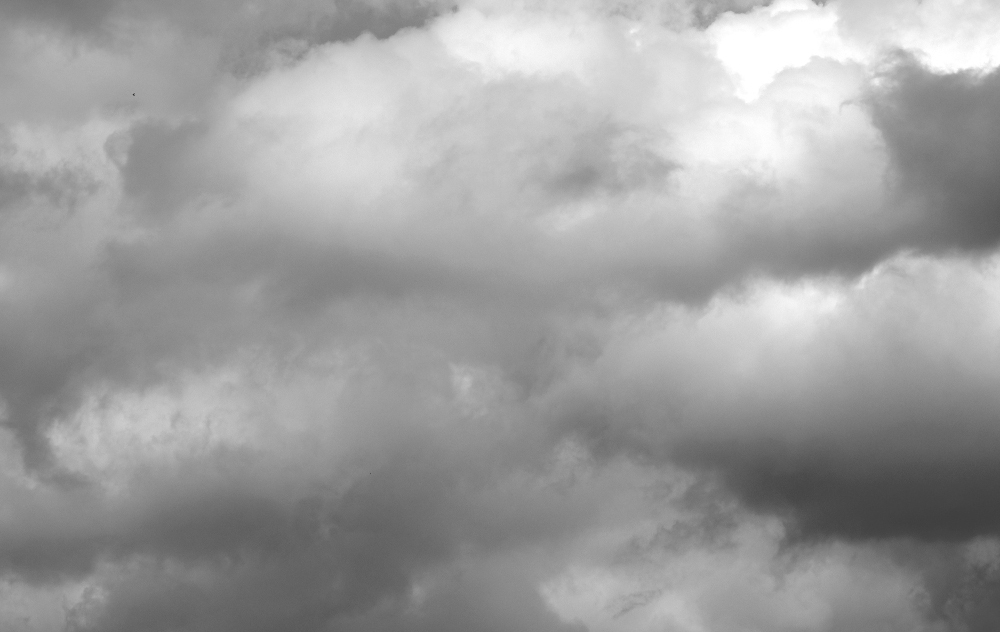
Tickets
Language
The conference language is English – after all, people from more than 20 countries are coming together.
German information about the conference please find here: http://berlinergazette.de/deutsch/uncommons